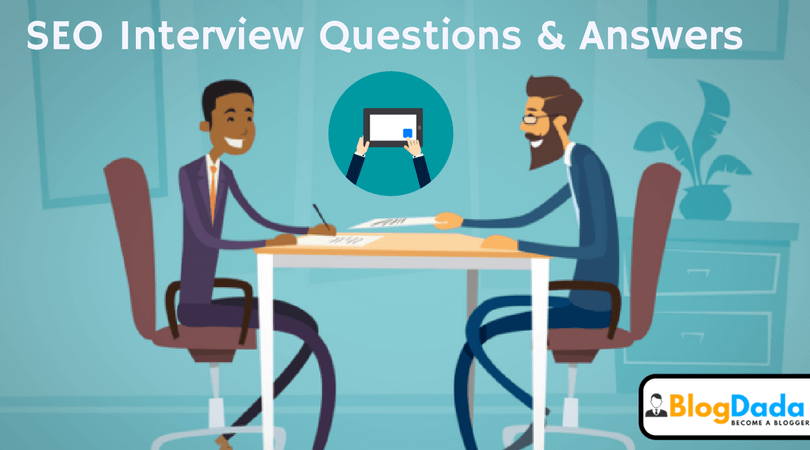In This Article:
- What is on-page SEO?
- On-Page SEO Tips & Tricks
- Place Keywords in the introduction paragraph:
- Bold, Italic & Underline Keywords:
- Insert Keywords in Heading Tags:
- Include Keywords in Your Blog Title:
- Use keywords in MetaSearch Description:
- Use Keywords in Image Alt Text, Title Text, and File Name:
- Use Keywords in Permalink:
- Interlink Blog Posts for Better Ranking:
- Avoid Keyword Stuffing:
- Write an Article with At least 1000+ words:
- Over to You
SEO stands for search engine optimization. On-page SEO refers to placing keywords in the proper place to optimize blogs to rank higher in search engines. On-page SEO is the initial stage of optimizing your blog for search engines.
With a perfect on-page SEO, we can rank higher in search engines. Many search engine optimization and marketing companies offer advanced on-page SEO techniques for their customers in order to rank their web pages in Google search results.
In this article, I am sharing some basic search engine optimization tips which are on-page optimization tips that help you to rank your blog well in search engines without hiring any local search engine optimization company.
What is on-page SEO?
On-Page SEO Ranking Factors is a way to optimize blog search engine ranking by placing proper keywords at appropriate places in blog posts. Including the perfect keywords in the content will rank the pages well in search results.
On-Page SEO Tips & Tricks
Before starting with on-page SEO, we have to select the right keyword which suits the best for the article to rank well. You can do keyword research using the Google keyword planner tool to fetch accurate keywords for your blog. Always choose the keywords which have more no of searches with less competition.
Once you are ready with your targeted keyword, then now it’s time for on-page search engine optimization to place the keyword at accurate places.
Follow the below tips to rank well in search engines:-
Place Keywords in the introduction paragraph:
It is necessary to include all your targeted keywords in the introduction paragraph. Always include your keywords in the introduction paragraph, middle of the content, and end of the content. It is advised not to overdo it. Keyword stuffing your blog with all the keywords will increase your chances of getting hit by Google updates. So always be careful while inserting keywords in the blog posts.
Bold, Italic & Underline Keywords:
Stylising your keywords will highlight the keywords and they can be easily targeted by visitors and search engines. So always bold, italic and underline the keywords to make your keywords look more attractive.
Insert Keywords in Heading Tags:
Most of the bloggers skip this step. But inserting keywords in heading tags like H2, H3, and H4 will definitely increase your visibility in search engines. Use proper heading tags to highlight your content and include the targeted keyword’s in the heading tags for a better search engine optimizing your blog.
Include Keywords in Your Blog Title:
This is the most important part of SEO optimizing your blog on-page SEO techniques. Because the title plays an important role in search engine optimization. Always select an eye-catching and user-friendly title with the targeted keywords in it. Try to be unique in creating a title. Organic visitors coming from search engines will click on your link by just looking at the title. So keep your title unique and engaging such that the user should show interest to click on your link.
Don’t make the title much longer and much shorter. Keep the title within 30-65 characters long with the targeted keywords included in it. To count the total no of characters in the blog title, you can use our characters counter tool.
Use keywords in MetaSearch Description:
Including your keywords in Meta description or search description will definitely increase your rankings in Google. Basically, a Meta description or search description is a short overview of the entire article. So include your keywords in the Metasearch description.
Don’t make the Meta description or search description too lengthy or too short. The Meta description should not exceed 160 characters and also should not be much short. To count your Meta description length use our character’s count tool.
Use Keywords in Image Alt Text, Title Text, and File Name:
Using the image’s in blog posts will give a good user experience. But search engines cannot understand what is actually there in an image.
SO we use alt and title text to describe an image. Placing keywords in the alt text, title text, and also in image file name will increase the visibility of blogs in search engines. Alt Text, Title Text & image file name should not contain more than 4 or 5 words.
Use Keywords in Permalink:
Using keywords in permalink will raise a signal to Google that the article is related to the keyword. So the chances of ranking your blog will be higher in search engines if you place keywords in the permanent link or URL of the blog post.
Make the permalink as short as possible by including the keywords in it. Don’t use more than 4 words in the permalink and don’t forget to include keywords in it.
Interlink Blog Posts for Better Ranking:
Internal linking previous articles will decrease the bounce rate and also increase your chances of visibility in search engines. Link your old article’s with the relevant words in the blog posts.
Avoid Keyword Stuffing:
Don’t use keywords repeatedly in the article. Your keywords should be included naturally only at the required position. Always maintain a good keyword density of 2-3%. Never stuff your blog will all the keywords. Otherwise, your blog will face hit by Google updates.
Write an Article with At least 1000+ words:
There is no specific word count limit for blog posts. But writing a blog with a minimum of 1000+ word does will keep your blog away from Google updates like panda update. Never write irrelevant content just to increase the word count. It’s the visitors who read your blog and not the search engines.
So always write articles from a reader’s point of view. You can count the total no of words in your blog post using our word’s counter tool.
Over to You
If you follow the above tips, Then 50% of SEO optimizing your blog is finished and the remaining 50% depends upon your off-page SEO.
These are the basic on-page search engine optimization tips to optimize your blog for search engines without hiring any local search engine optimization or marketing company. If your blog is perfect with on-page SEO, then the next step is an advanced on-page SEO guide.
If you have done both On-Page SEO Ranking Factors and off-page SEO perfectly, then your blog will rank higher in search engines.
Thanks for your precious time to read this article. If you have any query/suggestion regarding your blogging journey then please free to share through the comment section below.
Have a nice day! Happy Blogging 🙂




